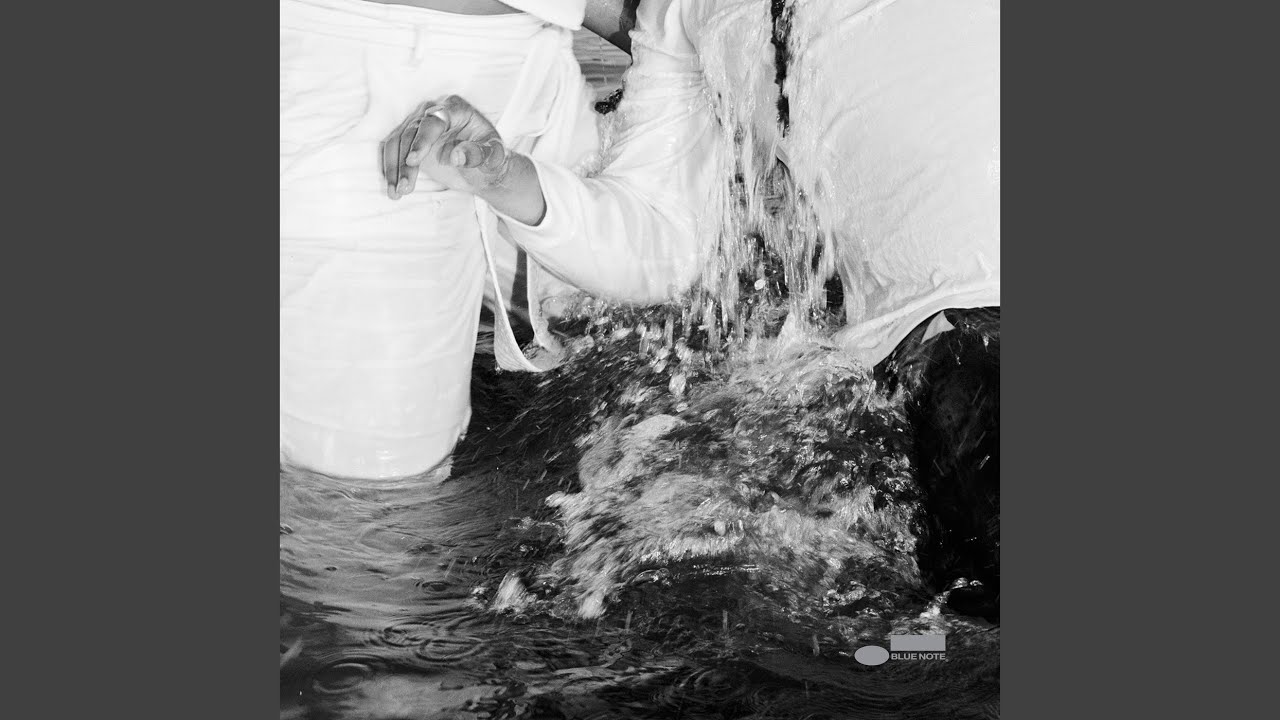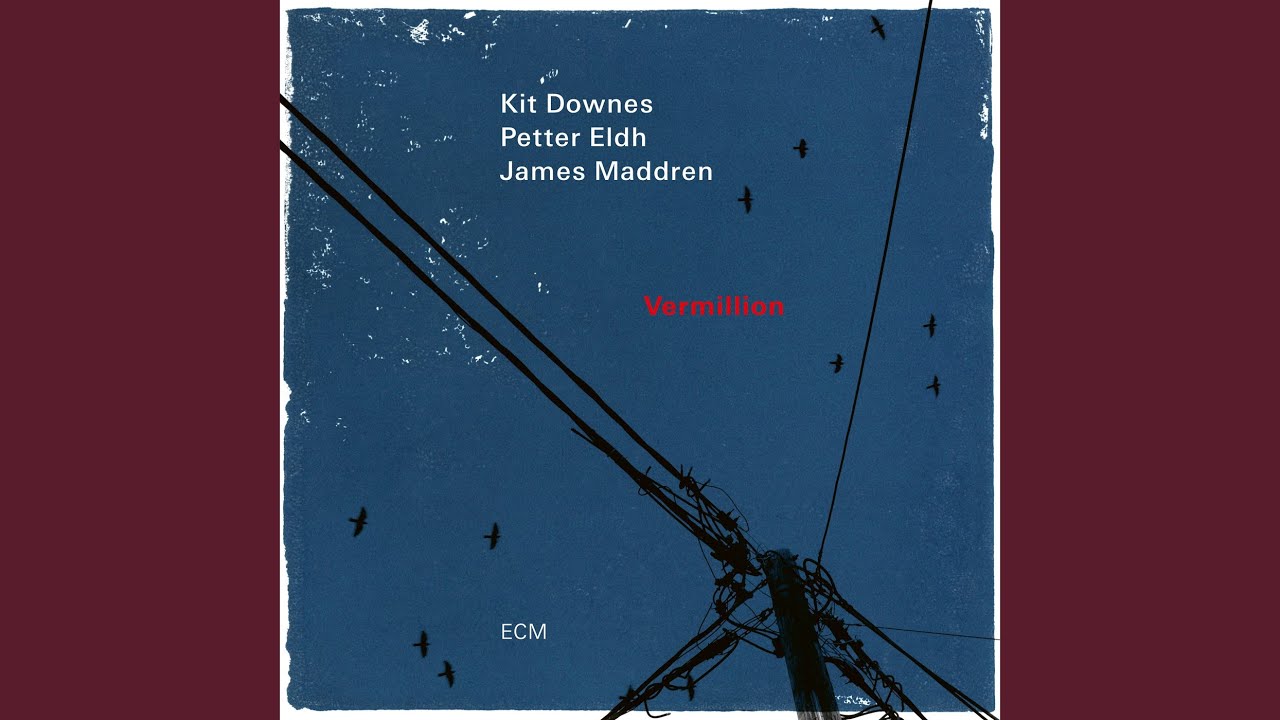Immanuel Wilkins by Rog Walker
Emerging from a rather miserable December, into early January, with NYC’s Winter Jazzfest showcase pushed online due to the omicron variant, it’s been heartening elsewhere to see the jazz world get off to such a brilliant start in terms of recordings in 2022. There was some terrific music to be heard last year, but a lot of it felt either wilfully oblivious to what was going on or weakened by it. We’re all ready to be done with this shit, and the new releases seem to be looking forward in this spirit.
One of the greatest losses of 2021 for the jazz and improvised music world was the passing of Professor Milford Graves, one of the most original and thoughtful percussionists there was. He was always incredibly mindful of the music he put out into the world. Few people of his stature have such a succinct (yet essential) discography.
We can be grateful that Michael Ehlers of Eremite Records has joined forces with LA’s Black Editions to launch Black Editions Archive. Graves is part of the initial release: Historic Music Past Tense Future, a searing live session with saxophonist Peter Brötzmann and bassist William Parker recorded in New York in 2002.
While the individual voice of each player is palpable, the long-term bond of Parker and Brötzmann is forced to adjust to the drummer’s singular attack, a tom-heavy polymetric whirlwind that digs deeper into time than most of us can reckon with. The music is characteristically visceral, but the challenge for the listener is less in its energy than its groove-fracturing content.
Swiss imprint ezz-ethetics continues its reconsideration of free jazz from the 1960s, with excellent remastering by Michael Brändli with New York Is Now and Love Call Revisited, two of Ornette Coleman’s most overlooked albums.
Both sessions, recorded in April and May of 1968, feature John Coltrane’s old rhythm section of drummer Elvin Jones and bassist Jimmy Garrison, with fellow reedist Dewey Redman sharing the frontline. It sounds like Ornette, of course, but Jones and Garrison inject a radically different feel to Charlie Haden and Ed Blackwell, or Billy Higgins. This shit sounds better than ever.
Immanuel Wilkins – The 7th Hand
(Blue Note)
24-year-old alto saxophonist Immanuel Wilkins composed this seven-part suite with a meaningful parallel between religious devotion and group improvisation. The progression of the music, climaxing with the ecstatic 26-minute closer ‘Lift’, which occupies nearly half of the album’s running time, is designed as an exercise in “vesselhood”. The musicians in his tight-knit quartet (bassist Daryl Jones, pianist Micah Thomas and drummer Kweku Sumbry) are merely containers for a unified improvisational process that transcends written notes by the end of the session, which is the metaphor for spiritual release. The first six parts, which all stand on their own despite certain melodic material resurfacing in different pieces, are concise, seriously memorable, and varied. The plangent melody of ‘Don’t Break’ sashays over the intricately polyrhythmic machinations laid down by guests the Farafina Kan Percussion Ensemble, while ‘Fugitive Ritual, Selah’ opens with a gospel-drenched line shaped by bassist Jones before toggling into a spiritual ballad designed to celebrate Black spaces. The first six pieces arrive as exceptionally sophisticated manifestations of different current jazz strains informed by a deep sense of history, while the closing piece is an unfettered expression of freedom, the notes on the page little more than a husk at that point.
The OGJB Quartet – Ode To O
(TUM)
The second album by this collective of seasoned players of different generations reinforces the idea of a shared language. Alto saxophonist Oliver Lake, cornetist Graham Haynes, bassist Joe Fonda, and drummer Barry Altschul possess loads of experience and wisdom from divergent contexts, but they’ve found a bracing freebop sweet spot together. Each musician contributes tunes to the project: melodic, concise, and wide-open vehicles for improvisation, which is ultimately the combo’s raison d’etre. Still, there’s an abiding equanimity to the proceedings, imbuing the performances with grace regardless of how fiery things might get. The title is a salute to Ornette Coleman, whose classic quartet shared the same instrumentation, but much of the music reminds me of the 1973 Dave Holland classic Conference Of The Birds, which featured the drummer behind a twin sax frontline. The themes are elegant and memorable, elastic enough to support some fiery blowing and rhythmic dissection. Haynes injects some live electronics on two pieces, including his ‘The Other Side’, adding another texture without upsetting the flow, but this is built on old-school verities.
Marta Sanchez – SAAM (Spanish American Art Museum)
(Whirlwind)
It’s nice to finally hear some music that was written as a reflection on the ongoing pandemic instead of something made as a reaction to it. New York-based Spanish pianist, composer and bandleader Marta Sanchez wrote the music during this period of isolation, contemplating internal struggles, but also lamenting the experience her mother’s passing during the lockdown on ‘Marivi’. That piece is both the album’s centrepiece and an anomaly, with guest singing by Chilean guitarist Camila Meza—intoning the pianist’s Spanish-language lyrics, and lyrical trumpet from Ambrose Akinmusire. The surrounding pieces were made with her working band — saxophonists Roman Filiu and Alex LoRe, bassist Rashaan Carter and drummer Allen Mednard — which cumulatively makes the harmonic complexity of the pianist’s compositions feel deceptively breezy when they’re anything but that. The opening piece ‘The Unconquered Vulnerable Areas’ underlines this seeming incongruity, with a keening melody that reflects self-doubt in a delivery that’s both assured and empathetic. The music exists in the current mainstream vanguard of New York, where the technical astonishments, particularly the high-octane interplay, are hidden in plain sight behind a sleek, appealing melodic lustre.
Kit Downes, Petter Eldh & James Maddren – Vermillion
(ECM)
Since signing with ECM Records a few years ago veteran British keyboardist Kit Downes has been showing off different sides of his musical profile, whether haunted solo pipe organ explorations or a moody electric chamber ensemble. His third album for the label offers yet another setting, but this one isn’t actually new. In the past his group with drummer James Maddren and bassist Petter Eldh released music as Enemy, but here the group is rebranded — perhaps to widen Downes’ portfolio — while pivoting from its old fusion-oriented sound for something more hushed. Still, it remains the work of a collective, as the bassist wrote as many of the tunes as the nominal leader, including the ravishing highlight, ‘Class Fails’. It’s a delicate recording where the tactile cymbal play of Maddren is heightened and the percussive snap of Eldh is muted, so in some ways the name change makes sense. There’s an emphasis on balladry, with each part of the triumvirate pulling out subtle melodic threads from the written themes like a magician, only for them to seemingly vanish as quickly as they appeared.
Luke Stewart’s Silt Trio – The Bottom
(Cuneiform)
New York/Washington D.C. via Mississippi bassist Luke Stewart seems to be everywhere these days, not just as a musician working in Irreversible Entanglements, Black Hosts, Heroes Are Gang Leaders, among others, but also presenting concerts, giving lectures, and writing. He’s nominally led some bands, but none as convincing as this trio with tenor saxophonist Brian Settles and percussionist Chad Taylor. This meticulously pitched effort was designed to mirror the flow of a concise live set, opening with Taylor’s ‘Reminisce’, a piece based on a Shona mbira melody that eases us in perfectly, with Settles blowing lilting melody over the leader’s tenderly cycling lines. The trio’s rhythmic power kicks in on ‘Roots’, where the drummer uses his trademark rim-shot mastery to carve out a deep groove without clobbering us into submission, while Stewart’s double-stopped drive on the title track accomplishes the same effect with a light touch. There is a ruminative, highly sensitive collective improvisation and another one that scorches, while the closer, named for La Monte Young’s ‘Dream House’, soulfully tip-toes away, adding up to a gripping album that largely relies of subtlety and insinuation to register its uncanny power.
Rob Mazurek Quartet – Father’s Wing
(Rogue Art)
Wildly prolific cornetist Rob Mazurek has reduced his output in recent years and it seems to have brought him a renewed focus. His recent work is as a good or better than anything he’s done previously. This is the second album with the quartet responsible for excellent 2019 recording Desert Encrypts Vol. 1, with pianist Kris Davis, bassist Ingebrigt Håker Flaten, and drummer Chad Taylor. The top-notch group sounds even more locked in here, operating as a collective to support a riveting consolidation of ideas and strengths by Mazurek. His experiments with wailing vocals, for example, have been unbalanced in the past, but here they make all of the sense in the world, as an extension of ecstatic horn blowing. But the real power is in his jagged yet indelible compositions which form a suite dedicated to his late father, who passed in 2016. Sadly, the cornetist had already cut a tribute to his mother, who died several years earlier. The sense of loss is palpable, but it’s trumped by a persevering spirt, none more powerful than on the album’s fiery opener ‘Crimson Wing’, a multipartite marvel of hard rhythm, feverish introspection, and spacey meditation. The whole band is on fire, and while it’s no surprise that Davis is especially strong, this rates as one of her finest dates in recent memory.
Sol Sol – What Year Is It?
(Sail Cabin)
This Swedish quartet nailed our pandemic ennui with this album title, but the music will endure beyond COVID. The tunes were written by saxophonist Elin Forkelid (Fire! Orchestra, Anna Högberg Attack!) and guitarist David Stackenäs (Fire! Orchestra, Labfield, Ballrogg, among many others), and despite their collective resumes playing left field music, this collection opts for something lyric and gentle. Drummer Anna Lund, another member of Högberg’s band, and bassist Mauritz Agnas lay down warm, supple grooves to support the ultra-melodic improvisations of their frontline partners. That’s not to say the music is conservative—the wide open attack on a tune like ‘Gladjazz’, which, between its soaring melody and ecstatic frontline dialogue, recalls something from the classic Sonny Sharrock album Ask The Ages — but the edges tend to glisten more than they cut. Indeed, the guitar sparkles on ‘Blanksmörjefabrikören’, which glides along with a pop-like sensibility, while ‘Bulgakov’ could be a lost gem from the heyday of soul jazz, with a slinking bassline I could imagine Paul Chambers unleashing. Sometimes music hits deepest when the impact is initially gentle.
Lopez/Laubrock/Rainey – No Es La Playa
(Intakt)
These days we’re awash in freely improvised recordings, most of which pale compared to the experience of witnessing such a performance in the flesh. Saxophonist Ingrid Laubrock and drummer Tom Rainey have spent years working together (and living together, as a married couple), and they long ago achieved a connection that makes their spontaneous music feel extraordinary — not exactly composed, but with such intuition that it doesn’t feel instantaneous. They first played with bassist Brandon Lopez in 2017 and the rapport was strong enough that they’ve continued working together. This debut album proves their instincts right. Lopez is a phenomenally talented bassist who shows off his ferocity a bit too often, but here he sounds incredible, applying his muscular attack to go well beyond what we might expect from a bassist. He has a simpatico partner in Rainey, an innately swinging drummer who can maintain pulse while making sounds that rumble, scrape, punch, and thwack. Together they give Laubrock’s rangy improvisational gifts a multi-directional, 3-D foundation. The bassist has absorbed plenty of lessons from William Parker, but apart from a shared sense of propulsion, Lopez has fully escaped that shadow here. It’s a knockout from start to finish.
Hans P. Kjorstad – Avkjølingshistorie
(Motvind)
Violinist Hans P. Kjorstad is the guy behind Motvind Records, an increasingly impressive and elusive Norwegian record label whose output routinely blurs lines between folk, jazz, free improvisation, experimental, and contemporary music. For this project the violinist sought to “produce a historical-essayistic-philosophical-poetic look at subjects related to geology, biology, mysticism and consciousness on several levels”. That’s a tall order, naturally, and while it’s hard to say how well he and his collaborators have achieved that goal, there’s little question that the music they made is superb. A terrific cast of improvisers, including trumpeter Eivind Lønning, guitarist Fredrik Rasten, violinist Ole-Henrik Moe, and reedists Marthe Lea, Rolf-Erik Nystrøm, and Andreas Roysum, among others, seem to be channeling sounds from the natural world as they navigate the leader’s impressionistic score. These pieces eschew any clear stylistic hierarchy, instead drawing upon the improvisational gifts of the musicians to conjure atmospheric motion, turbulent weather, wild animals, and other unidentifiable references. While there are certainly moments where the instruments sound like you’d expect, that is clearly not the point here. I’m not always sure what Kjorstad and his crew are getting at, but I’ve never been less than spellbound in trying to figure it out.
Jessica Pavone – When No One Around You Is There But Nowhere To Be Found
(Relative Pitch)
Violist Jessica Pavone has straddled the worlds of improvisation and contemporary music for years, as many acolytes of Anthony Braxton do. But she’s been on a tear in recent years, both with solo recordings and chamber string groups. This new solo effort further blurs the written/improvised line and finds her engaging in new strains of exploration. ‘Performance Novels’ unleashes a striated, overtone-rich see-saw intensity that’s both slashing and meditative, while the title piece judiciously applies some electronic effects, transforming some pizzicato into a whirring, shape-shifting opening for some plaintive fiddling that sounds like a folk transmission from a Norwegian fjord. ‘Only In Dreamz’ is a largely spoken diary entry of nocturnal visions that are more compelling than her delivery and how it is limned by plucked viola notes. Electronics extend and shadow the closing drone, ‘Aednat’, occupying a space of sustained long tones that’s transformed Pavone’s work into something consistently strong.




